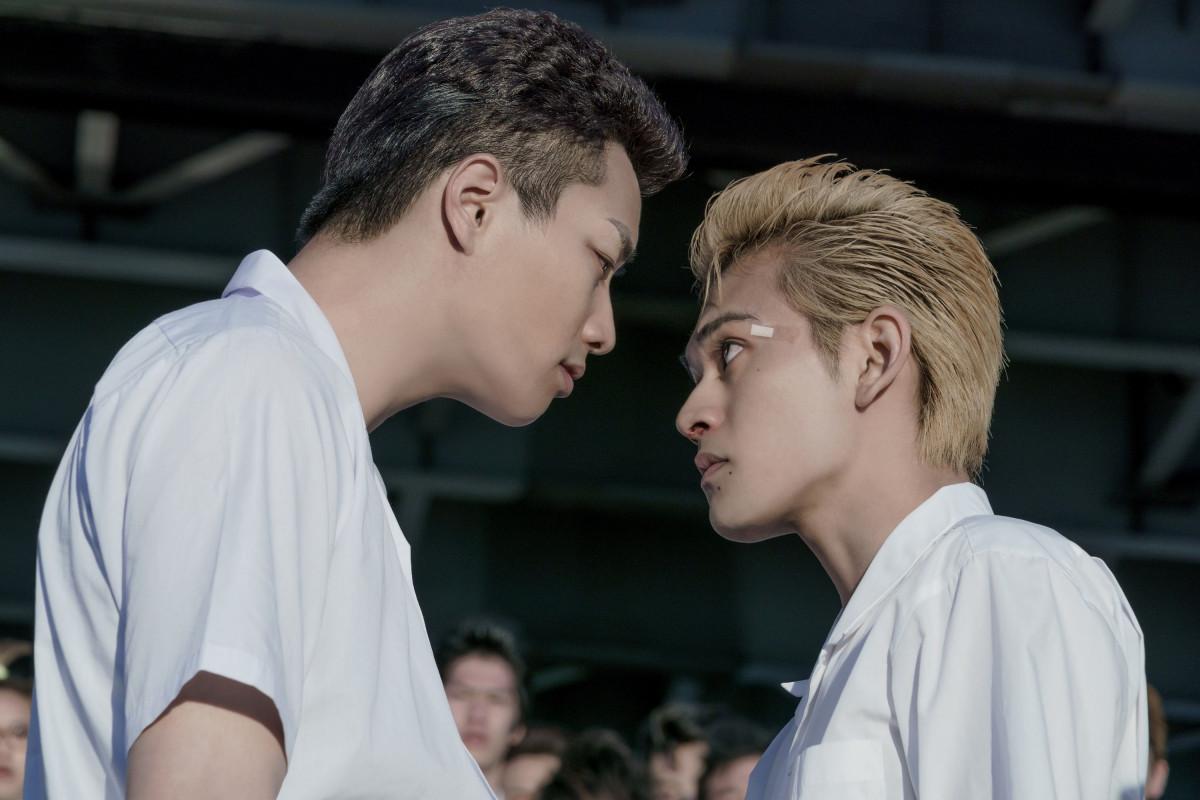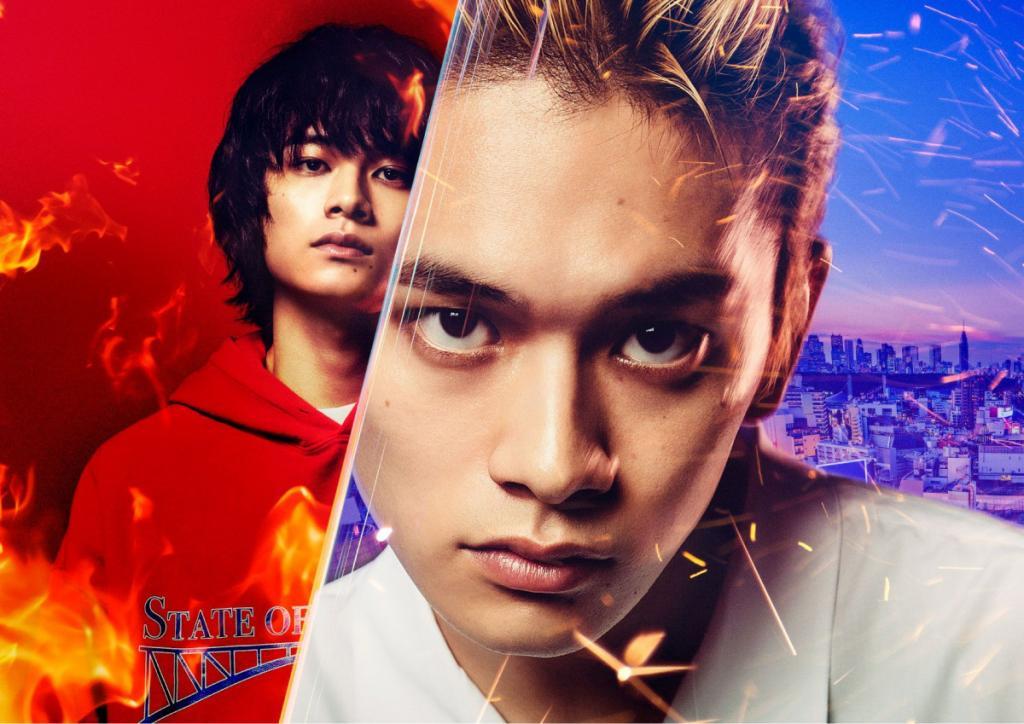
There’s ample reason why it is anyone in my time zone, or living within three hours within it, can tell you their perceptions about the state of live-action projects based on any Japanese IP to negative avail for the past decade. Granted, barring any such announcements made in the last four or five years, it still bears noting the phenomena of what we’ve seen on the feature film front, specifically with Japanese studios.
That’s not to say Japan hasn’t had its misses, but the hits are nearly as consistent as you would expect compared to anywhere else. Warner Bros. Japan’s own streak remains supreme of late with Kakegurui shepherd Tsutomu Hanabusa’s treatment of mangaka Ken Wakui’s Tokyo Revengers, based on the 2017 manga adapted for TV by Liden Films this Spring, and for this summer’s big screen run by Izumi Takahashi (Zebra, Museum, One Night).
The bulk importance of films like these is the proven ability of a writer or writer/director to squeeze an entire animated episodic into a commercially presentable feature-length film. Hanabusa’s name stands firm along the cadre of filmmakers able to perform this feat alongside the likes of Shinsuke Sato (Bleach), Fumihiko Sori (Fullmetal Alchemist) and Yuichi Fukuda (Gintama) of late, in case you need additional examples; This review of Tokyo Revengers will be solely based on having the seen the film. Even so, this doesn’t undercut this film’s merits.
Tokyo Revengers is a bit of a time travel oddity that doesn’t really dive much into its own sci-fi framework – its central character, Takemichi Hanagaki (Takumi Kitamura), suddenly awoken to the news of the recent gangland violence fatally suffered by his high school girlfriend, Hinata (Mio Imada), only to get shoved into a time portal that sends him back ten years into his delinquent high school past.
Sadly, these were less-so the glory days than he and his four friends had hoped, following a brutal beatdown by Masataka Kiyomasu (Nobuyuki Suzuki) and his goon squad, which ultimately led to Hanagaki’s own subjugation and life-changing detriment. Between incidents and time jumps however, Hanagaki, with the help of his temporal connection, Hinata’s detective brother, Naoto (Yosuke Sugino), decides to fight a little harder to change the course of his own history, which effectively bring him in close circles with then Tokyo Manjikai Gang (a.k.a. “Toman”) founders, Manjiro – a.k.a. “Mikey” (Ryo Yoshizawa), and Ken – a.k.a. “Drakken” (Yuki Yamada), to whom Kiyomasu actually answers.
Before he knows it, he’s reconnected with Hinata, and a day later, a moment of sheer guts earns Hanagaki the respect of both bosses, although that isn’t the good news. Really, the longer Hanagaki remains on good straits with the two would be leaders, the more he stands to gain in learning the truth about the Toman founders, their friendship and their own core values, and what could have led to the tragic falling out that initiated the violent chain of events leading up to Hinata’s death. That means mitigating with Naoto’s frustration with solving Hinata’s murder, in addition to Hanagaki’s own insecurity and frustration with never being as big and tough enough to take on the underworld, or for that matter, enough to save the life of the one person he’s loved the most.
For folks watching Tokyo Revengers, that also means enjoying a worthy underdog tale that centers itself in rebellious delinquent youth, a mix of eccentric and otherwise palatable characters, and the kind of gangbuster action and spectacle that’s become so prolific in recent Japanese titles. The presence of Gekidan EXILE member Suzuki (Aragure 1 & 2, HiGH&LOW saga, From Today, It’s My Turn!!) seems to be the biggest seller in that regard alongside Yoshizawa and Yamada in the roles of “Mikey” and “Ken”.
Kitamura is pretty much the main character in Sato’s Alice In Borderland, albeit rebranded. Hanagaki is a bit of a slacker who gets frequently disrespected by co-workers at his dead end store job, and that’s really all we know until we soon start to see him go through the motions of panicking and trying to figure out when and where he is, and why he’s suddenly in high school again. His burgeoning relationship with Hinata is a very heartfelt and poignant one, and so it’s worth investing in as she always goes out of her way to be there for him, to see past his faults and to love him unconditionally.
It’s also interesting to see how the story develops everytime between temporal displacements. This aspect of the story doesn’t get so exaggerated to the point of being downright silly, which is more than I can say for Hanagaki’s acceptance of the world around him, and that the greater consequence beyond the possibility of losing Hinata for good is also what keeps you steering behind Hanagaki, right down to his final duel.
Tokyo Revengers may not take itself too seriously as a genre-bender, and it could very well be lazy writing that explains why we never really learn just what it is that propels Hanagaki back and forth in time between a simple handshake with Naoto. What matters, however, is that any and all who’ve been keeping up with Japanese live-action releases can gurantee themselves a great time with Tokyo Revengers, a coming-of-age sci-fi that dares you to look past the tattoos, see your so-called enemies for the hearts of gold they have, and in the face of the seemingly impossible, take back what’s rightfully yours.
Of course, this does raise a dilemma for the nitpicky types who tend to weigh in heavily on conversations about time travel, and often procure topics about the potential consequences that never get explored as a result of dicking around with the space-time continuum…which is fine. Alas, it warrants reminding not to take this film that seriously. Why? Because… Tokyo Revengers still kicks ass. That’s why.
Tokyo Revengers screened for the 25th Fantasia International Film Festival, which runs through August 25.

